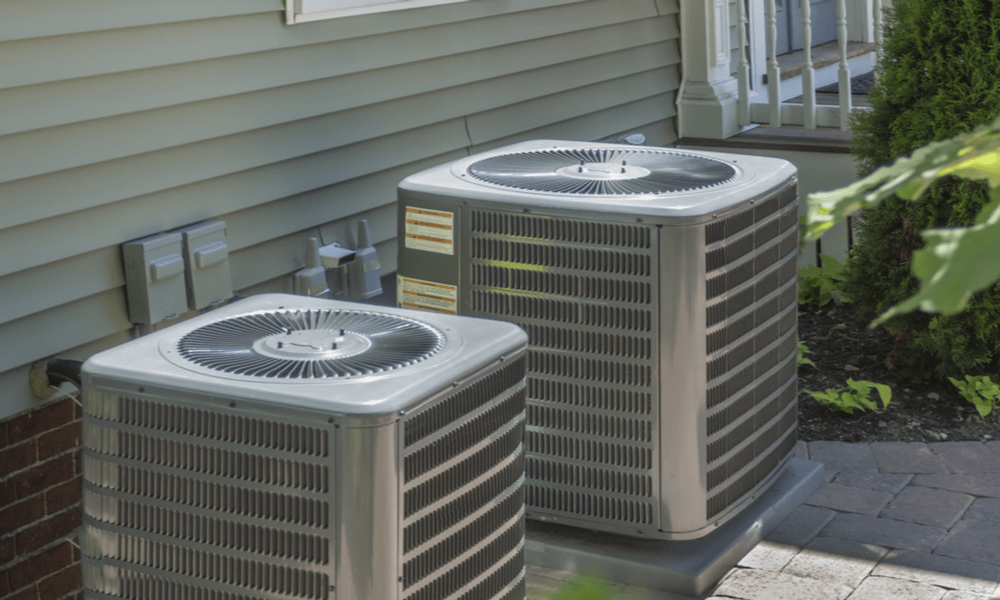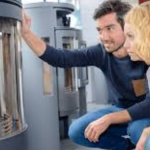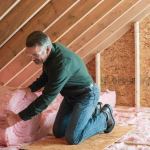Renovating a home is a huge undertaking, with many things to consider. But energy efficiency often doesn’t make a list. With summer coming up, it’s essential to think about how your work will affect your utility bill come fall and winter. Makin energy-efficiency improvements can add value to your property for years to come and beautify it.
Many Canadians are upgrading due to more time spent at home, less money spent on leisure activities, and a low-interest-rate environment. According to a recent survey, Canadians will spend $80 billion on home upgrades in 2020.
You can’t afford to disregard energy efficiency if you want to make your space more livable and increase the market value of your property, and here is why.
Energy Efficiency Adds Value
It’s easy to get caught up in the details of your makeover, such as stone worktops or new flooring. While these changes will surely increase the appeal of your home to potential buyers, it’s also vital to think about some of the less obvious upgrades that will make your home more energy-efficient and save you money in the long term.
Making energy efficiency a priority in your remodelling plans may also add to the value of your property and the near-term benefits of enhanced energy efficiency to your home’s comfort and power bills. Energy-efficient homes are becoming increasingly popular due to a growing emphasis on environmental concerns.
The building or renovating an energy-efficient home saves money on utilities and upkeep. Still, it will also improve your quality of life and provide more in-home comfort, such as controlling your home’s temperature, lights, and sound with smart technology.
So, which energy-saving upgrades are a good fit for you? Here are some enhancements that will give you the most bang for your buck in the short and long term.
Make Sure Your Home Is Adequately Insulated
Insulation reduces heat movement between the interior and exterior of your home, making it essential for improving home comfort. A well-insulated home, including basements and attics, can help you save money on electricity.
When looking into insulation options, keep an eye on the R-value, which indicates how efficient the insulation is. The thickness of the material and how well it limits heat transfer determine the R-value. The stronger the resistance to heat loss, the higher the R-value (and the better the savings too).
Replace that worn-out Item. HVAC
Heating and cooling systems in homes have a set lifespan. Furnaces and central air conditioners endure 15 to 20 years on average, with boilers lasting a few years longer.
Replacing your home’s heating, ventilation, and air conditioning (HVAC) system is a significant project that necessitates professional assistance. The first step is to locate a qualified and licensed contractor. This individual can assist you in making the most excellent buying option for your house and needs. The Technical Standards and Safety Authority require HVAC contractors in Ontario to be licensed and registered. You can find a licensed contractor near you by searching the website of the Heating, Refrigeration, and Air Conditioning Institute of Canada (HRAI).
Obtaining multiple written estimates from various contractors is critical. When presenting you with options, each contractor should evaluate the size, construction, and layout of your home and conduct a heat loss estimate. If the ductwork is enough to fulfill your new equipment’s airflow requirements, the contractor should inspect it. The estimate should include data on the recommended equipment and information on its efficiency and warranty. Furthermore, your contractor should agree to remove and dispose of your old furnace following applicable environmental rules.
When purchasing a new furnace, you may want to consider upgrading your entire HVAC system (including the air conditioner). To increase your home’s comfort, you might consider installing an air filtering system and a humidifier.
It’s ideal to opt for ENERGY STAR® certified furnaces and air conditioners, which consume up to 6% less energy than non-certified versions.
Upgrading an aging HVAC system will help you save money on your energy bills, improve your comfort, and perhaps increase the value of your property.
Heat Pumps Are a Type of Heating System that Uses Electricity
Installing a heat pump is an excellent long-term solution to save energy and cut GHG emissions. A heat pump uses an electromechanical compressor to transfer heat from one location to another. As a result, it may heat or cool any living space. Air conditioners and refrigerators both work on the same premise.
Instead of using fuel to generate heat, air-source heat pumps use the refrigeration cycle to transport heat into and out of your home. Air-source heat pumps for cold climates are designed to extract heat from the outside air at temperatures as low as -25°C. When the outside air temperature lowers, the heat pump’s ability to draw heat from the air decreases, and the efficiency of these systems decreases; air-source heat pumps, on the other hand, are still more efficient than electrical heating systems and can be more cost-effective than oil and gas heaters, even during a cold spell.
Windows with Low Energy Consumption
Ensure you physically inspect and operate the alternatives you’re considering when picking which windows to buy. Because windows should last at least 20 years, you want to ensure that they perform smoothly right away.
Renovations are thrilling, especially when you know you’ll be able to reap the advantages of your improvements for years to come. Even if energy-efficiency improvements aren’t as thrilling as a new kitchen or bathroom, keep in mind the enormous comfort and short- and long-term financial gains they’ll give.
Make a Renovation Plan
Once you’ve decided on the changes you want to make, you’ll need to determine whether you want to do the work yourself or hire a professional.
Doing Things on your Own
If you decide to undertake the work yourself, keep your health and safety in mind.
- Follow the manufacturer’s instructions when using tools and products.
- Wear the proper protective gear and clothing.
- Protect your house and family from toxins such as dust and debris.
- Take precautions when working in locations where mice and their droppings, mould, lead, asbestos, vermiculite insulation, and other dangerous elements may be present.
Using a freelancer
Local bylaws and related provincial, territorial, and federal legislation and standards are your contractor’s responsibility. Ask any potential contractor the following questions:
- Is it okay if I call your references?
- Will this project comply with bylaws and other laws and require construction or utility permits?
- Do the items you recommend comply with all applicable laws, and can you provide any Material Safety Data Sheets available?
- What kind of experience and issues have you and your team had with these items and procedures?
- What precautions will you take to ensure the safety of my house and family both before and after the renovation?
Once you’ve decided on a contractor, get written bids. Before any job begins, insist on a formal contract.
Complete your Homework
As a homeowner, you are responsible for selecting materials and obtaining all necessary building and utility permissions. You and your contractor ensure that all products, services, and installations comply with applicable building regulations and standards if no building permit is necessary or obtained.
Product Selection
Obtain information about the goods you or your contractor plan to utilize.
- Proper installation practices should be learned and followed.
- Ascertain that the products comply with Canadian product requirements. A compliance mark or stamp can be found on some products, and others can have a Canadian Construction Materials Centre assessment number.
- Find out whether there are any health and safety concerns regarding these products; if so, get Material Safety Data Sheets, and follow all safety precautions.
Considerations for Energy-efficient Renovations in Terms of Health and Safety
If you’re contemplating house upgrades, keep the following in mind:
Asbestos
Asbestos is a term used to describe a group of minerals. These minerals can be utilized to create durable, long-lasting, and fire-resistant products. Before 1990, asbestos was mainly utilized to insulate buildings and households from the cold and noise, and it was also used to prevent fires. Asbestos fibres can cause cancer and other disorders if inhaled.
Insulation using Vermiculite
Asbestos fibres may be present in some vermiculite insulation found in older homes. Suppose the insulation is sealed behind wallboards and floors, isolated in an attic, or otherwise protected from contact with the interior environment. There is currently no indication of harm to human health in that case. However, if done incorrectly, it might be harmful to one’s health.
Radon
Radon is a colourless, odourless, tasteless radioactive gas that occurs naturally. It is created by the radioactive decay of uranium, a naturally occurring element present in soil, rock, and groundwater. When radon is released into the open air, it is diluted to low amounts and is not a health risk. However, in confined locations such as dwellings, it can build up to dangerous levels, posing a health risk to you and your family.
Conclusion
Renovating your home can be a great way to update it and add value, but it’s essential to make sure you include energy efficiency measures in your plans. It will save you money on your energy bills in the long run, but it will also help reduce your carbon footprint. There are many ways to make your home more energy-efficient, from insulating your walls and attic to installing solar panels or a wind turbine. Talk to a professional about the best way to make your home more energy-efficient, and start saving money and the planet today. Thanks for reading!









Leave a Reply